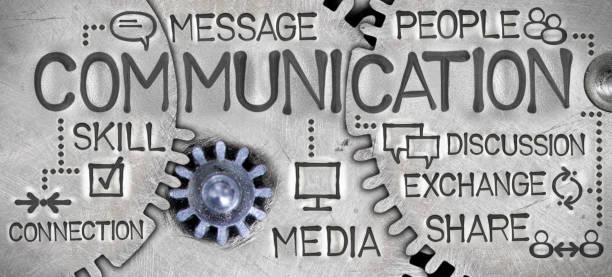Developing Effective Communication Skills
What is communication and why is it vital both in our workplace and in our personal lives? Communication is the act of giving, receiving, and sharing information. Communication is talking, writing, listening, and reading. Good communicators listen carefully, speak and write clearly, and are respectful of different opinions. Without effective communication skills, you are often left frustrated that your message isn’t being perceived properly or you can become confused on information that is being presented to you.
There are four types of communication to consider – verbal, non-verbal, visual, and written. In any given day we may tap into all four types, which is why it is so important to do our best to both understand and to be understood.
Non-verbal communication is your body language. This includes eye contact, hand gestures, and tone of voice. Your body language will let your audience know what kind of message you are trying to send. A relaxed, open stance (arms open, legs relaxed), and a friendly tone will make you appear approachable and will encourage others to speak openly with you. Eye contact is also important. When speaking you always want to look the person in the eye to demonstrate that you are focused on them and the conversation.
Most references for good communication mention the “Seven Cs”. The Seven Cs are outlined below:
- Conciseness – Try to eliminate wordy expressions and lengthy messages. Include only relevant information and avoid unnecessary repetition when speaking or writing.
- Completeness – Your message should be complete by providing all of the necessary information and be complete enough for your audience to understand, take action and/ or respond accordingly.
- Clarity – Use precise and familiar words to keep your message clear. Construct complete and effective sentences and paragraphs.
- Courteous – Be humble and polite. Courtesy is very important especially in business. Answer your emails promptly. Use words that show respect. Be sincere, tactful, thoughtful, and appreciative.
- Concrete – Be specific, relevant, and to the point. Reinforce your message with facts or figures to eliminate any misunderstanding.
- Correctness – The core of being correct starts with providing information that is accurate. Use proper grammar, punctuation, and spelling, Also use the correct level of language.
- Consideration – Think and speak from the other person’s viewpoint.
Lastly, and most importantly we can’t forget to listen. Developing good listening skills takes time. Practice active listening by paying close attention to what the other person is saying. Ask clarifying questions and rephrase what the person says to ensure that you understand- i.e., (“So, what you’re saying is…”). Through active listening, you can better understand what the other person is trying to say and only then can you respond appropriately.
Reneé Hudson, Loss Prevention Consultant, PRM
